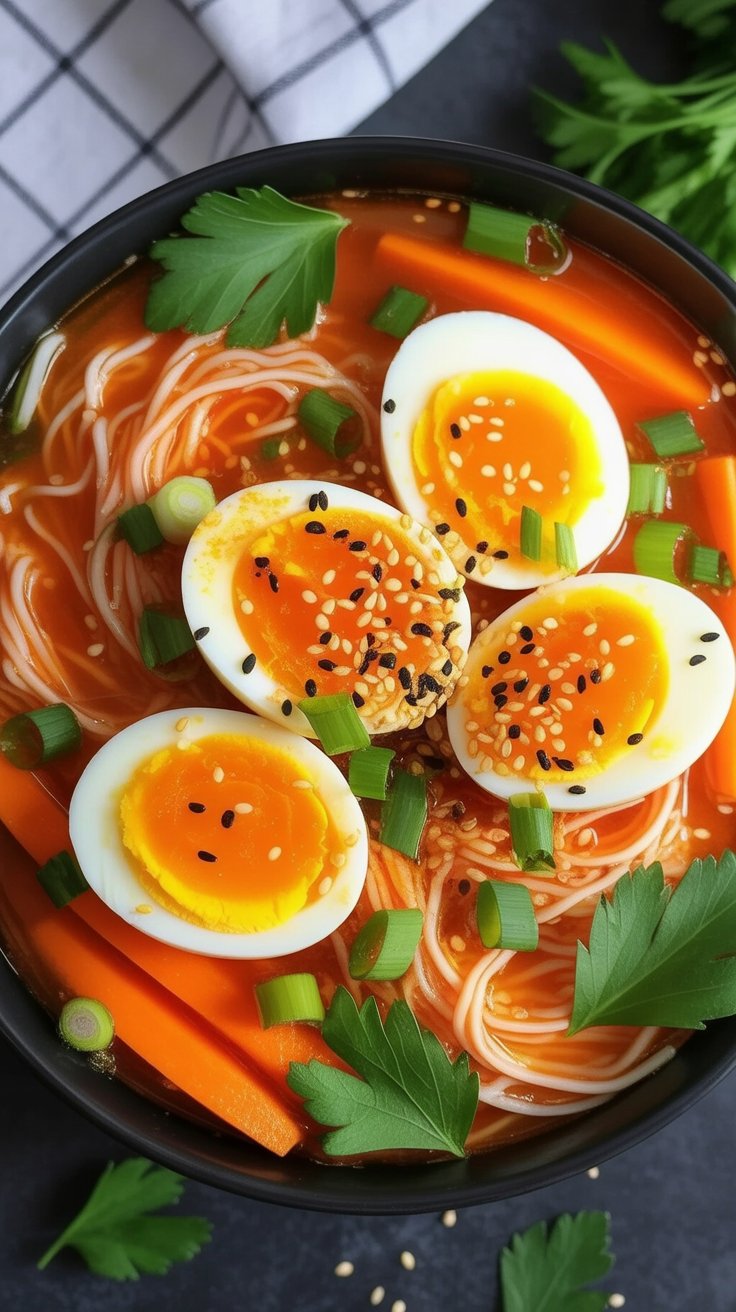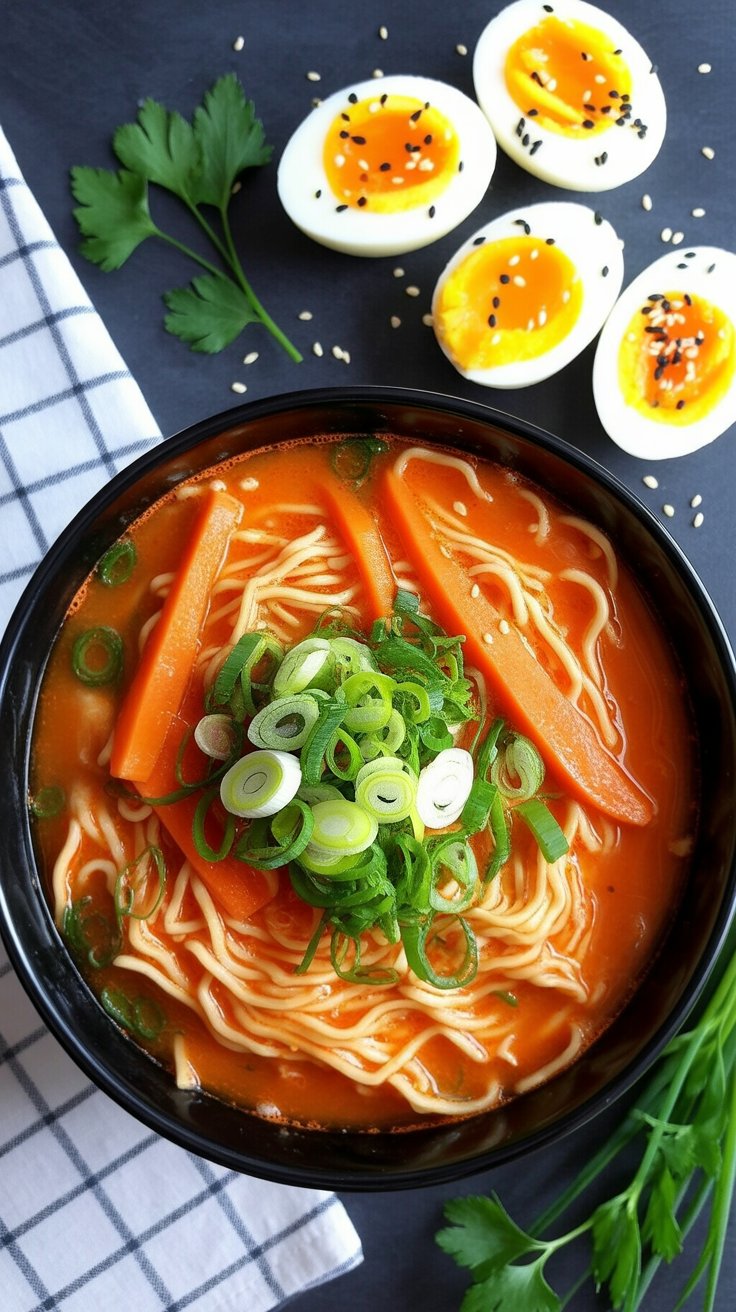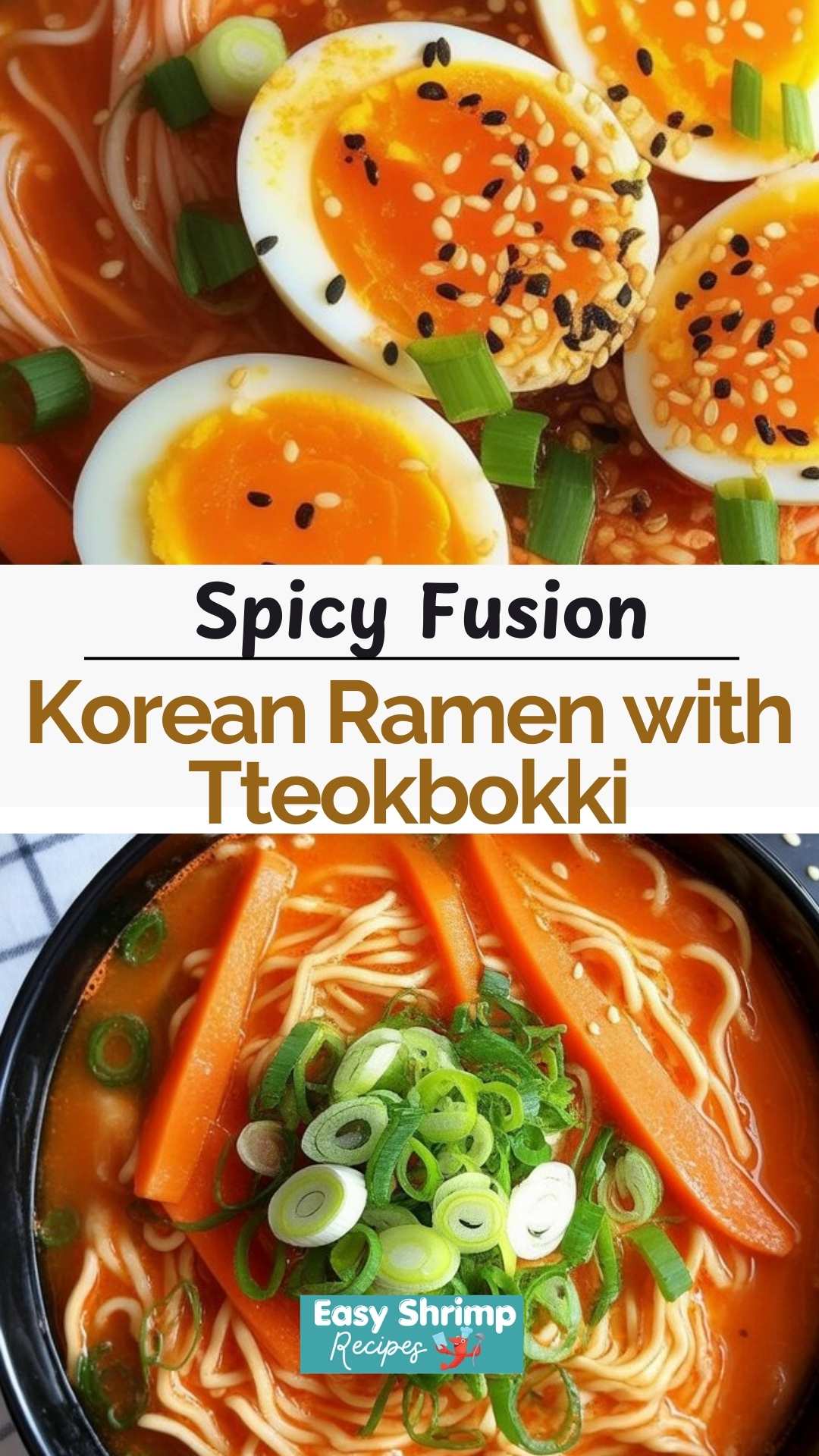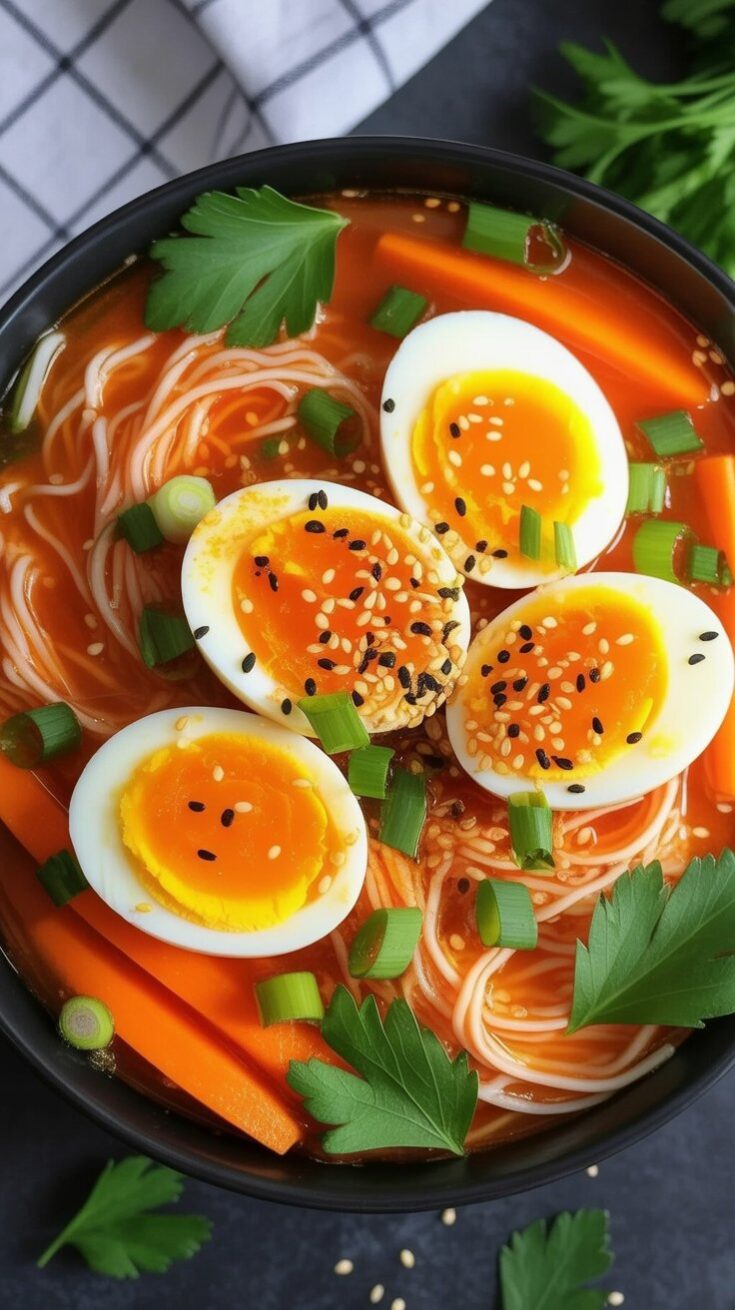Robokki—ramen with chewy rice cakes—hits that sweet spot between comfort food and bold flavor. For me, this dish carries a sense of cozy indulgence. There’s something about slurping spicy noodles while fishing out soft, chewy rice cakes that feels almost therapeutic after a long day. I started making this at home when I noticed how often it appeared in Korean mukbang videos. My daughter loved the rice cakes when she was younger, though she wasn’t a fan of fish cakes, so I left those out. Turns out, I like it better that way too.

This version keeps things simple—just noodles, chewy rice cakes, and a spicy-sweet broth that warms you from the inside out.
The Ingredients That Make It Shine
-
Rice cakes (tteokbokki): These aren’t the crunchy snack cakes you find in North America. They’re chewy, cylinder-shaped rice sticks made from short-grain rice flour. I buy mine from the freezer section of our local Asian market, but big grocery stores carry them now too.
-
Gochujang: A Korean chili paste that’s spicy, slightly sweet, and deeply savory. I always keep a tub in my fridge—it lasts forever and adds instant flavor to soups, marinades, and stir-fries.
-
Gochugaru: These red chili flakes have a fruity heat that’s different from regular chili powder. The bright red color makes the broth look so inviting.
-
Ramen noodles: I usually grab instant ramen packs, toss the seasoning, and just use the noodles. They cook quickly and hold onto the sauce beautifully.
-
Soft-boiled eggs: If I have time, I marinate them in soy sauce overnight. It feels like a little upgrade that makes the bowl look restaurant-worthy.
Cooking Notes from My Kitchen
The broth is the backbone of this dish. I like starting with vegetable stock, but chicken stock gives it a heartier base if that’s what you prefer. The rice cakes need a good 10 minutes to soften, and I stir them often so they don’t stick to the bottom. Once the noodles go in, it’s quick—three to five minutes at most.
My tip for the perfect bowl: taste the broth before adding noodles. If it’s too spicy, add a splash more stock or a pinch of sugar. If it’s too mild, a dab more gochujang fixes it instantly. Cooking Korean food at home is all about balancing flavors until it feels right for you.

Make-Ahead Tips
This is best enjoyed fresh, but you can prep a few elements earlier. Boil and marinate the eggs a day ahead, soak and drain the rice cakes, or even whisk the sauce together and keep it in a jar in the fridge. That way, when you’re ready to eat, all you have to do is simmer, drop in the noodles, and you’re good to go.
How I Like to Serve It
Honestly, a big steaming bowl of Korean ramen with tteokbokki can be a meal on its own. On nights when I want more balance, I’ll set it alongside a crisp cucumber salad or simple steamed greens. The freshness cuts through the heat and starch beautifully. If friends are over, I’ll put out small side dishes like kimchi or pickled radish—it feels more like the banchan spreads you’d find in a Korean home.
Storing Leftovers
This dish is best eaten hot and fresh, but if you do have leftovers, store them in an airtight container in the fridge. The noodles will soak up the broth, so expect them to be softer the next day. When reheating, I add a splash of stock or water in a saucepan to loosen everything up. Rice cakes reheat nicely if you give them a little extra simmer.

FAQs
Can I use different noodles?
Yes, udon or even glass noodles work if you don’t have ramen, but ramen gives the best chewy bite with the broth.
Is this dish very spicy?
It depends on your gochujang and gochugaru. Start small and taste as you go. I sometimes tone it down with a bit of sugar or extra stock.
Where can I buy tteokbokki rice cakes?
Most Asian supermarkets carry them in the freezer section. If you can’t find them, some larger grocery stores stock them now too.
Can I add protein to this?
Definitely! Thinly sliced beef, chicken, or tofu work well. Just cook them in the broth before adding noodles.
Korean Ramen with Tteokbokki

If you’re craving comfort food with a kick, this Korean-inspired bowl of ramen with chewy rice cakes (tteokbokki) will hit the spot.
Ingredients
- rice cakes, thawed (1 pound)
- Korean ramen noodles, discard seasoning packets (3 packs)
- vegetable stock, low-sodium (4 cups)
- gochujang (1/2 cup)
- garlic, minced (3 cloves)
- gochugaru (1 tablespoon)
- soy sauce, low-sodium (2 tablespoons)
- sugar (2 tablespoons)
- marinated soft-boiled eggs, halved, for serving
- green onions, thinly sliced, for garnish
- toasted sesame seeds, for garnish
Instructions
- Pour the vegetable stock into a large, deep pan and stir in the gochujang, garlic, gochugaru, soy sauce, and sugar until well blended. Bring the mixture to a gentle boil over medium-high heat.
- Add the rice cakes and let them simmer in the spicy broth for about 10 minutes, stirring now and then to keep them from sticking.
- Once the rice cakes are softened and chewy, slip the ramen noodles into the pan, pressing them gently into the broth. Cook for 3–5 minutes, just until the noodles are tender and springy.
- Spoon the noodles and rice cakes into bowls and ladle over plenty of broth. Finish each bowl with a halved marinated egg, a sprinkle of sesame seeds, and a scattering of fresh green onions. Serve piping hot.
Nutrition Information
Yield
4Serving Size
1Amount Per Serving Calories 224Total Fat 9gSaturated Fat 3gTrans Fat 0gUnsaturated Fat 6gCholesterol 47mgSodium 984mgCarbohydrates 29gFiber 2gSugar 5gProtein 6g
Easy Shrimp Recipes.com, occasionally offers nutritional information for recipes contained on this site. This information is provided as a courtesy and is an estimate only. This information comes from online calculators. Although allchickenrecipes.com attempts to provide accurate nutritional information, these figures are only estimates.
Final Thought
This Korean Ramen with Tteokbokki is the kind of dish I turn to when I want comfort without too much fuss. It’s hearty, spicy, and deeply satisfying, yet quick enough for a weeknight. Each bite of chewy rice cake tangled with noodles reminds me of why I fell in love with Korean food in the first place—it’s bold, comforting, and endlessly fun to cook.

